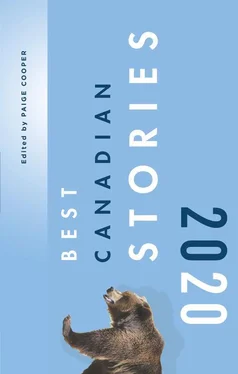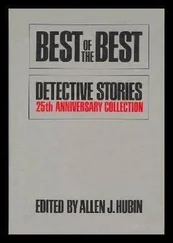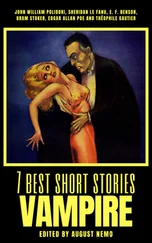Today, as I write to you from vernal isolation, it’s not unlikely that you are reading this in one species of defamiliarization, or another. We are learning to describe a world that most realists (American, Canadian, perhaps even Socialist) would’ve waved off as fantastical, histrionic, a tad genre, a month or two ago. You line up outside the grocery store. Police officers lean into your car and ask how you’re feeling. A woman gets arrested for going for a walk. A man sneers at your mask and swerves across the sidewalk to cough on you.
But it must also be evident, at this point, that defamiliarization—narrative or linguistic—was not my only selection criteria, as noble as it is. Because, as I progressed, it turned out there are too many good short story writers in this country: writers with a high tolerance for ambiguity, that not only accept gaps but revel in them, and have the generosity to let something chthonic crawl in.
So I narrowed the vise further, added a selfish requirement that interests me as a writer but might be inconsequential to many readers. I wanted stories that were difficult to write. That demonstrate what Christa Wolf called “moral courage on the part of the author—the courage to risk self-knowledge.” I wanted the stories that my soul said could not have been made without exacting some toll from their maker. Labour; pain; deep thinking; Sisyphean imaginative muscle; a mothly instinct towards explicit, immolating honesty. I wanted blood to be spent; evidence of collapse, of that grating, unwilling metamorphosis that occurs when time passes in mortal lives.
*
As I’ve drafted this essay, the world has been made progressively stranger, which is another way of saying our sense of reality has been expanded. The ways in which people resist reality—using denial, or delusion; or else lovingly, humanely, with sweetness and honest rage—indicates to me that reading fiction isn’t just a rarified aesthetic affectation, but an act of imaginative malleability that feeds resilience. What do I mean? That there are those of us who are frozen, holding still until the familiar carapace returns to us unchanged—waiting for our daughter to come back to us from the far end of the empty parkette—but there are also those of us who are paying careful, stunned attention to how she is never the same, moment to moment, how our daughter is and has always been a sussuration of unpredictable sparks. Of course, I am describing a false binary: we are all both waiting and watching; we are all always both invested in the surface and the core. But, since paying attention is the process whereby fiction describes reality’s various layers, no matter the constrictions or unreliability of such, I am suggesting we err on the side of constant witnessing.
The more evident the expanding depth and breadth of our realities, the more rigorous the duties of our imaginations: first, we have to imagine our new reality in order to understand how to be in it, and then we have to do that for every person we know, and every person we don’t know, and the nonhuman natural world, and maybe some objects and hyperobjects and systems, and then, after all that, we must also imagine the future of this new reality without, hopefully, feeding the collective’s ambient anxiety. It’s exhausting work, and provoking. But you, the reader of an introductory essay in an annual anthology of short fiction, have been equipped for this, somehow. I’d venture that it is possible that the defamiliarizing aspects of fiction—not the tranquilizing escapism, not the personal identification (you), or the didactic “humanizing,” or the empathetic universality of the closely-observed detail in our daughter’s sentimental playground—have given us a capacity to expand our notion of reality to include ourselves as we are, not just as we thought we were. And all this while we remember that a knowable person, like a knowable world, is the unbelievable thing.
Like meeting a stranger, much of the pleasure of a story is its unknown power. The right story, at the right time, if you happen to be open to it, if you have a need, maybe a desperate one, to be moved outside yourself, can perhaps move you so far outside of yourself that you will not consider going back to who you were thirty minutes ago, before you started following this line of narrative with its inexplicable relevance and corollary power. Because, also like meeting a stranger, a story contains the risk that you may be touched, that you may suffer or feel pleasure, that the effects might play out over the course of years, a decade, and also that, by the end (if there is one), you might have become unrecognizable to the person who read the story to begin with. This is what I mean when I say a story can be a cataclysm. And if a cataclysm is a particularly terrifying prospect, right now, have courage. Because there are other possibilities; they are nearly infinite. And sometimes when you meet a stranger all that happens is you fall in love.
The Gas Station
Souvankham Thammavongsa
Mary believed there were two kinds of people in the world. There were those who were seen and those who were not. Mary considered herself the latter.
She hadn’t lived in the town for long, only a few months. It was known for its beaches. It swelled with tourists during the summer and then was quickly abandoned. There was no bar or café open by summer’s end. She liked the town empty.
Mary preferred her own company. She was thirty-six years old, living, with no pets, in a small house painted white. It was one of many white houses in the neighbourhood, painted that way because of the intensity of the sun. The one she lived in had a flat roof. It wasn’t a place that needed to deal with snow. Or cold. She didn’t know they still made houses this small. She didn’t know who owned it. She wrote her cheques to a corporation that was just a bunch of numbers. Her wardrobe was two black pencil skirts, one black jacket, and two black blouses, one short-sleeved and one long-sleeved. The house had one of everything. One bedroom, one bathroom and one kitchen. Each room had one window in it, all of which looked out onto the same pine tree. It was not a pleasant sight.
What was a pleasant sight was the man who worked at the gas station. She saw him there, but they never talked. He had a terrible reputation. Something about him taking in women and leaving them, always, wailing in the street below his window, begging. Mary wondered what he did to make them lose themselves that way. And whether it would happen to her.
Mary worked from home. She was an independent accountant. During the tax season she often found work at a clinic or some pop-up arrangement, or sometimes clients came to her. She had many types of clients. They all surprised her with their needs and problems, but her favourites were the ones who had to explain what had happened to the person they filed with the previous year. Their husband, their ex, their other person. In this way, she saw every stage of love. The giddiness at having found each other, the boredom of having been together, the anguish of separation. This was how you lived a full and human life. It was like a play acted out in front of her. She spent her days listening to people describe how things had fallen apart. Did they see it coming?
One client Mary never forgot. She worked for the government. She was a redhead with large blue eyes. She booked and rebooked her appointment on the phone and then finally arrived. Her ex wanted to claim the childcare expenses, but she was the one who paid them. Mary looked at her papers laid out on the table and advised her that since they were not together, and the child lived with her, it was her right to claim the expenses.
The other woman’s eyes welled with tears and they began to fall one right after the other. Mary started with the 1040. She made sure to leave blank the box that asked for $3 to go to the presidential election campaign. She filled in exemptions, calculated total income, then adjusted gross income. This went on for quite some time. Mary filling in the lines, and the woman and her tears. The woman apologized. “I’ve been with incredible men,” she said. “Men who really loved me and cared for me. And appreciated me. But he, he was the only one.” It sounded like a cheap old country song. “I had been told I couldn’t have a baby. Given my age. I didn’t give it much thought. So when I got together with him, I wasn’t thinking. And then suddenly I’m pregnant. After all the tests, the pills. He’s the father of my child.” Mary did not say anything. She was filling out the forms.
Читать дальше

![Коллектив авторов - Best Short Stories [С англо-русским словарем]](/books/26635/kollektiv-avtorov-best-short-stories-s-anglo-thumb.webp)










